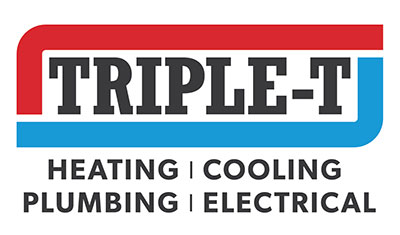Benefits of Home Generators
With today’s unpredictable electrical grid, having a backup power source is more important than ever. Power outages can happen anytime, leaving families in the dark—literally. If your goal is to preserve comfort and security when the power goes out, nothing works better than a home generator. Explore what makes the power go out, the different types of backup generators for home use, and the many benefits they offer.

What Causes Power Outages?
When you flip a light switch or press a button on the remote, you take it for granted that the lights and TV will turn on. But if there’s a power outage, you’re out of luck. Electricity may stop flowing to your home for various reasons. Here are some of the most common culprits:
- Weather: According to Climate Central, about 83% of major power outages between 2000 and 2021 were attributed to bad weather. Events like hurricanes, tornadoes, blizzards, and earthquakes can knock down power lines and damage infrastructure. These natural occurrences are unpredictable and can affect large regions for extended periods. Then, extreme cold or heat increases demand on the power grid, which may prompt utility workers to enact rolling blackouts.
- Equipment failure: Severe weather isn’t the only thing that can make the grid go dark. A complex network of components must work together flawlessly to deliver electricity from power plants to homes and businesses. Eventually, transformers, transmission lines, and other critical equipment fail due to age, lack of maintenance, or defects, causing outages even on calm, sunny days.
- Human error: The power grid is also vulnerable to mistakes made during construction, maintenance, or utility work. Accidental damage to power lines or infrastructure may lead to immediate power loss in the surrounding areas.
- Wildlife interference: Animals, particularly small mammals and birds, can cause short circuits or damage when they come in contact with electrical equipment. Brief, localized outages may repeatedly occur until workers reinforce the affected components against wildlife intrusion.
What are the Types of Backup Generators?
Generators come in many styles, sizes, and brands. Even so, there are only two main types to choose from:
Portable generators are versatile and can be moved easily, making them ideal for temporary power needs or use on camping trips, construction sites, or other outdoor settings. They typically run on gasoline or diesel fuel and require manual setup, activation, and monitoring. Their affordability and flexibility make them popular for immediate, short-term power.
Standby generators offer a more lasting solution. Installed permanently on a concrete slab near your home, they automatically turn on within 20 to 30 seconds when the power goes out, providing a quick transition to backup power with no manual input required. Often running on the home’s natural gas line, standby generators are capable of powering the entire house, including critical systems and appliances, without the need for refueling. Their convenience and reliability make them a favorite for comprehensive backup power.
Benefits of Generators
Generators provide a lifeline during power outages. Here are specific advantages that make them a worthwhile investment:
- Provide emergency power: Whole-house generators, in particular, ensure that essential services like lighting, home security, and communication devices remain operational, keeping you safe and connected. They also offer a sense of normalcy and comfort during power disruptions.
- Keep your home comfortable: Generators allow HVAC systems to continue operating, preventing the discomfort and potential dangers of extreme temperatures. This is crucial for avoiding heat-related illnesses in the summer or frozen pipes and hypothermia in the winter.
- Prevent food spoilage: By keeping refrigerators and freezers running, generators save you from the cost and inconvenience of spoiled food. This serves as a great stress reliever, especially if you just restocked the fridge before an extended outage began.
- Prevent basement flooding: Sump pumps stop rising groundwater from flooding the basement, but only if they have power. In this way, generators are indispensable for avoiding flood damage during stormy weather, the most common cause of power outages.
- Protect appliances and electronics: Sudden outages and subsequent surges when the power is restored can damage sensitive computers and other electronic equipment. Generators provide a stable power supply, safeguarding these valuable items from harm.
How to Choose Your Generator
Selecting the best generator for your house involves considering your home’s size, your power needs, and the level of convenience you desire. If you want a generator for occasional temporary power at home or on camping trips, a portable generator is a cost-effective, easy-to-store solution. You can plug essential items like phone chargers, mini-fridges, and window air conditioners straight into them using an extension cord.
If you prefer a whole-house solution that starts automatically during an outage and powers your home’s vital systems for extended periods, a standby generator is right for you. This option is a better fit for those who prioritize convenience and comprehensive coverage with no manual refueling required.
As for sizing your backup generator, find a model that matches your power needs with a little room to spare. This involves assessing the wattage of the devices you plan to run simultaneously during an outage. Don’t forget to account for starting watts, the extra wattage needed to get some appliances running. Consulting a professional electrician is the best way to choose a generator that fits your home and electrical demands.
Schedule a Generator Consultation in Utah
Triple T Heating, Cooling, Plumbing & Electrical proudly offers electrical installations and repairs, including whole-home generator services. Our licensed, bonded, and insured electricians can help you make the right selection and perform a professional, code-compliant installation. Then, we’ll keep your system running efficiently and reliably with ongoing repairs and maintenance. We offer upfront estimates, affordable financing options, and service beyond expectations. For reliable generator installation and repair services, please contact us at 801-798-7711 if you live in Utah County or 435-275-4011 if you’re a Washington County resident.


